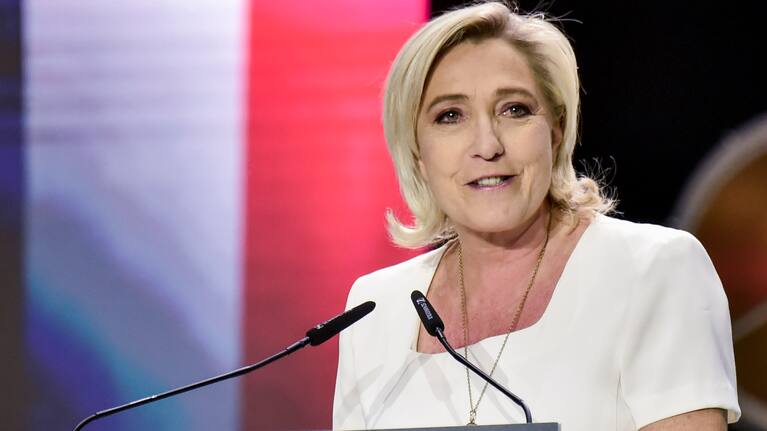Analysis: France’s President is betting it all against a far-right surge in his nation and across Europe, writes 1News Europe correspondent Mei Heron.
French President Emmanuel Macron had no choice but to call a snap election to prove he was still in control following his party’s humbling defeat in the European Parliament elections earlier this month.
France will now head to the polls in two rounds of voting, the first on June 30 and then on July 7, just three weeks out from the Olympic Games being held in Paris.
The shocking decision came after Marine Le Pen’s far-right National Rally Party (RN) won 31.4% of the vote in the European parliamentary elections – more than double the 14.6% Macron’s party alliance received.
So, off the back of a heavy defeat, why go into battle again so soon?
Firstly, this is a different arena. The EU elections have long been seen by voters as protest votes against reigning governments, a relatively low-risk way to let leaders know they are deeply unhappy with the status quo. Therefore, it’s unclear whether the French people will be bold enough to go as far as voting for RN to govern their own country.
But the RN party has been increasingly on the rise over the past decade, and after the recent election results, Macron wants clarity.
Like a wounded man asking his partner to pick between two lovers, Macron has made it clear: it’s either them or me, you can’t like us both, and if you want Marine Le Pen and her far-right party so much, then you can have them.
“I’ve decided to give back to you the choice for the future of our parliament with a vote,” he told the French people while announcing the snap election, calling it an “act of trust”.
Looming 'cohabitation'

These elections will decide the country’s new prime minister and while Macron’s presidency isn’t up for grabs this time, his reputation certainly is.
Macron sees himself as a fighter, a person who performs well under pressure, and thrives in confrontation.
In 2022, he faced down no-confidence votes and countless protests to push through unpopular changes to the retirement age. He also flew smack into the middle of New Caledonia’s pro-independence flare-up.
His challenge now to the far-right also demonstrates the struggle Macron currently faces to pass legislation since losing the parliamentary majority two years ago.
It's set to get even harder if Le Pen’s party wins the upcoming election, forcing Macron into a power-sharing government known as a “cohabitation”. It would be the first time under this arrangement the president and prime minister would hold such polarising views on how the country should be run.
Macron would still be in charge of international duties and lead the military, but the RN party would control domestic affairs.
If the RN win, Le Pen will likely promote her 28-year-old protégé Jordan Bardella to Prime Minister and save herself for a run at Macron’s job when the presidential elections occur in 2027, although it’s very possible he might step down before then.
It's not entirely clear how this would affect New Zealand’s relationship with France, our third-largest individual trading partner within the EU.
But far-right policies tend to be more protectionist, more inward looking, so it’s not promising for us.
Ramifications for the rest of Europe?
French President Emmanuel Macron’s party was handed a humbling defeat by the far-right at the European elections. (Source: 1News)
Some analysts believe Macron has taken a calculated risk.
It’s possible the RN party and a young Bardella might struggle with the pressures of being in charge, and having an inexperienced far-right take power for a few years may reveal their incompetence at a government level, paving the way for Macron’s party to succeed again come 2027.
But there is no doubt, this is a massive gamble.
These elections at the end of the month could also result in a hung parliament, throwing the country into chaos just as it’s about to host the Olympics.
It’s not just Macron’s personal legacy and ambition on the line - he’s giving the far-right a chance to come into power, potentially putting the stability of France and the EU at risk.
Germany, Italy, Austria and the Netherlands all saw a rise in far-right parties during the European elections.
However, while the far-right have ended up with a record number of seats, they still might struggle to achieve any tangible change within the EU, holding only a quarter of the assembly. Not all right-wing parties across the European parliament see eye to eye either. For example, Marine Le Pen is often labelled as being pro-Russia, while Italy’s Giorgia Meloni is staunchly pro-Ukraine.
But there is a common thread between these far-right parties; they tend to be anti-immigration, firm nationalists, and wary of green and climate policies.
Their support is also surprisingly young – an indication of which way the winds may be blowing in Europe.



















SHARE ME